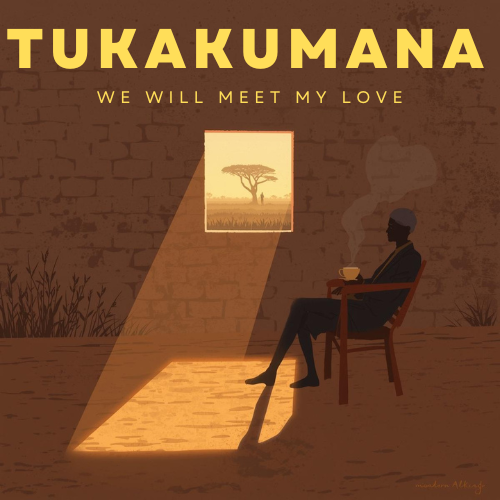MALAWIAN TRADITION: MALONJE
My father was Ushi (Bemba), from Luapula province in Zambian and my mother was Tonga, from Chintenche in central Malawi. I therefore had the good fortune of being exposed to two different traditions at home.
A Malawian tradition that I like is that of giving Malonje.
Giving malonje is the Malawian Tonga tradition of debriefing a visitor. They are given time to tell everything there is to tell about their journey. It is an art of story-telling that involves capturing your audience and engaging their attention for the duration of the narrative. Tonga people have mastered this art.

In the sixties and seventies, communication was by snail mail (you wrote your message on a piece of paper, folded it and tucked it into a paper envelope. It was called a letter. You then went to a post office and bought a postage stamp. You licked this and stuck it on the envelope. You then dropped it into a post box and you waited for it to be shipped to the addressee). A letter took a few months to get from Zambia to Malawi. The first we usually knew of a visitor’s arrival was when they were at our door step.
When a visitor arrived, whoever saw them first would announce to the others that we had a visitor. Everybody would drop what they were doing, run towards them and relieved them of their luggage. Mum would shout instructions for me or my young brother to grab a chair and position it in the shade under one of the fruit trees around the house. If it was a lady, we would get a reed mat and lay it on the floor.
Irrespective of the time of day, my mother would start a fire on a charcoal brazier or on the stove. One of us would go and sit with the visitor and start some light banter. In what seemed like just a fleeting moment, my mother would announce to the visitor that their bath was ready.
While they were bathing, a room would be prepared. When they came out of the bathroom, a meal would be waiting for them on the table. It was a whirlwind of activity, centered on the visitor.
Quite often this involved slaughtering a chicken (especially if it was during day time). Then one of the children would be instructed to share the meal with them, to keep them company.
Once they had eaten and rested, then everybody would sit around a fire (or in the sitting room) and do a fresh round of welcoming the visitor.
Then mum would ask “How is everybody back in the village, and how was your journey?” This was an invitation for them to give MALONJE.
The answer was not a word or two. The closest term for what ensued is perhaps the word documentary.
The visitor would give a detailed account of their journey. This was often in such vivid detail that I often felt as though I was reliving their experiences with them. Apart from occasional prompting questions from listeners, the floor belonged to the visitor as they told their story, relayed messages from various relatives and distributed any presents they had brought.
The audience was far from passive. My parents would be nodding, expressing surprise or whatever emotion the narrative evoked. The children would be listening, wide-eyed.
What I enjoyed the most was the fire side story telling and the communal spirit that this brought on. The atmosphere sitting around a fire, listening to someone masterfully relate a story was very special. There’s something magical about sitting around a fire. The level of interaction is different from what you get sitting around a TV screen, or gathered in the living room.
Every visitor got this special and very warm welcome.
The sessions were good for us as children. We learned the art of story telling.
We also learnt about places we’d never been to.
Some of the disadvantages included the fact that this was time-consuming and was not always convenient for the host, especially if someone arrived unexpectedly. It also meant dropping all your scheduled activities that evening.
The remarkable thing is that I never once heard my mum complain that she was being inconvenienced. She always selflessly embraced the experience and emphasized the positives. She never wavered.
In urban areas, these practices with their advantages and disadvantages have tended to give way to more pragmatic arrangements. Visitors may arrive in the wake of breaking news on CNN or ZNBC News. They may not enjoy the spotlight to the same extent that was possible then.
I wonder whether it would be the same feeling if the visitor put up a power point presentation, a slide show or a video presentation to relate their travels? Would that be too contrived?
Is there anything that can be salvaged from Malonje, or is it another one of our traditions that is on its last legs, having its loyal practitioners only in the village?
In my household we practice a variation on this tradition. We encourage each other to take as many photos as possible when going on a journey. The photos form the highlight when we get back.
It’s not always possible for everybody to gather around the TV to watch the slides. On the other hand, we can even email photos, thus sharing the experience even before the end of the journey.
Surely book reviews, film reviews, articles and documentaries all satisfy some of the same needs that Malonje met in a more traditional setting?
The welcoming and feeding of the visitor before getting them to give an account of their journey is an elegant example of Maslow’s hierarchy of needs theory in practice (i.e. An individual’s most basic level of needs must be met before they will strongly desire or be motivated to focus on the secondary or higher level needs).
The main element they are missing for me, is that warmth and magic of a family gathered around a fire.
I recently visited mum’s village with my family. The magic lives on.
Share your thoughts about African Traditions with us in the FORUM or in the comments box below.


JS, this sounds very familiar to me. We use the same word in Tumbuka, except we say ‘MALONJI’. This article has taken me years back. We still use the word malonji in our family whenever we meet each other after long periods of separation. And we often laugh because we are reminded of our parents.
Lydia,
The tradition is certainly the same in Zambia and Malawi. The border between Zambia and Malawi was a political one.
Both “Malonje” and “Malonji” work in Malawi.